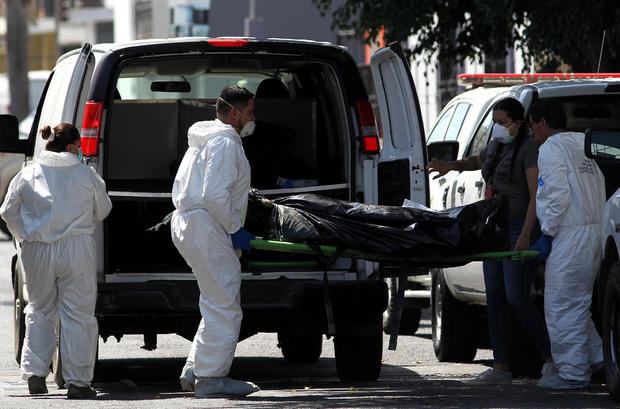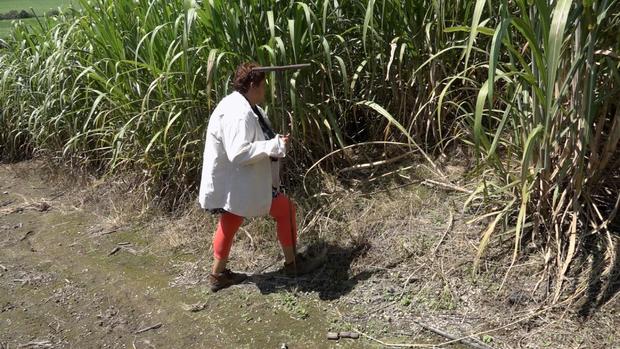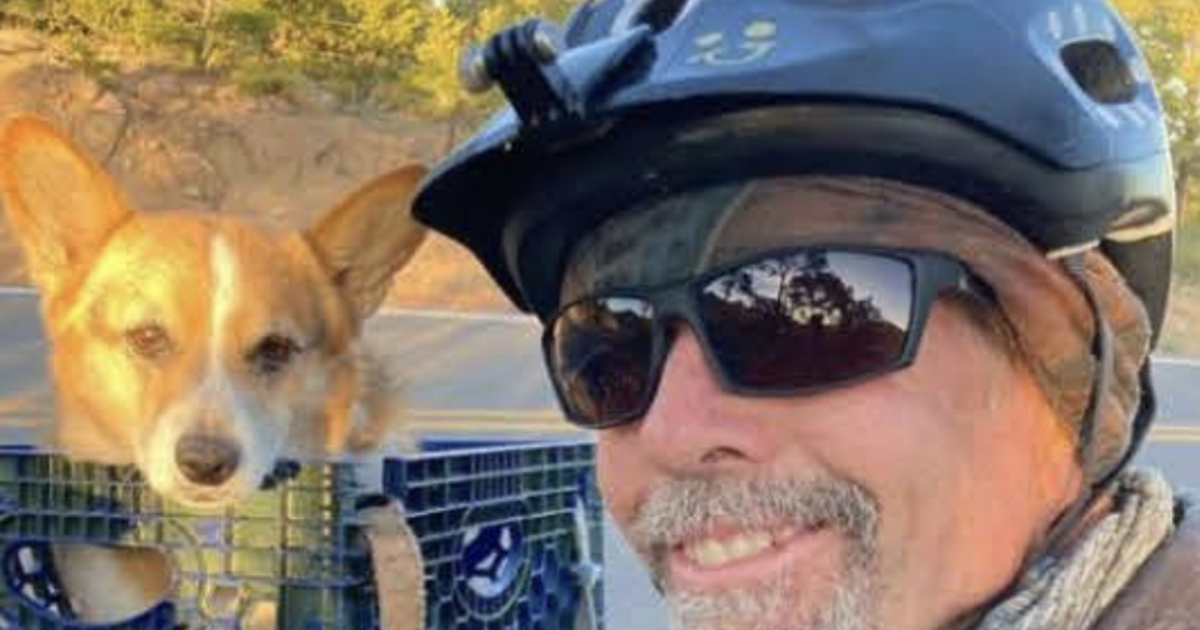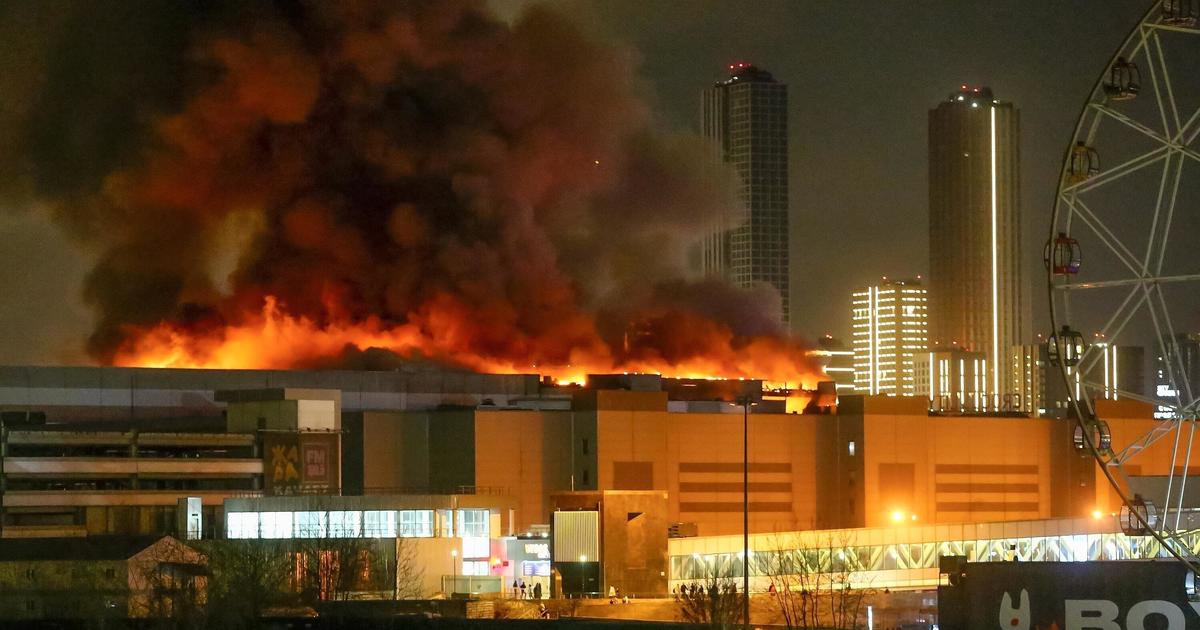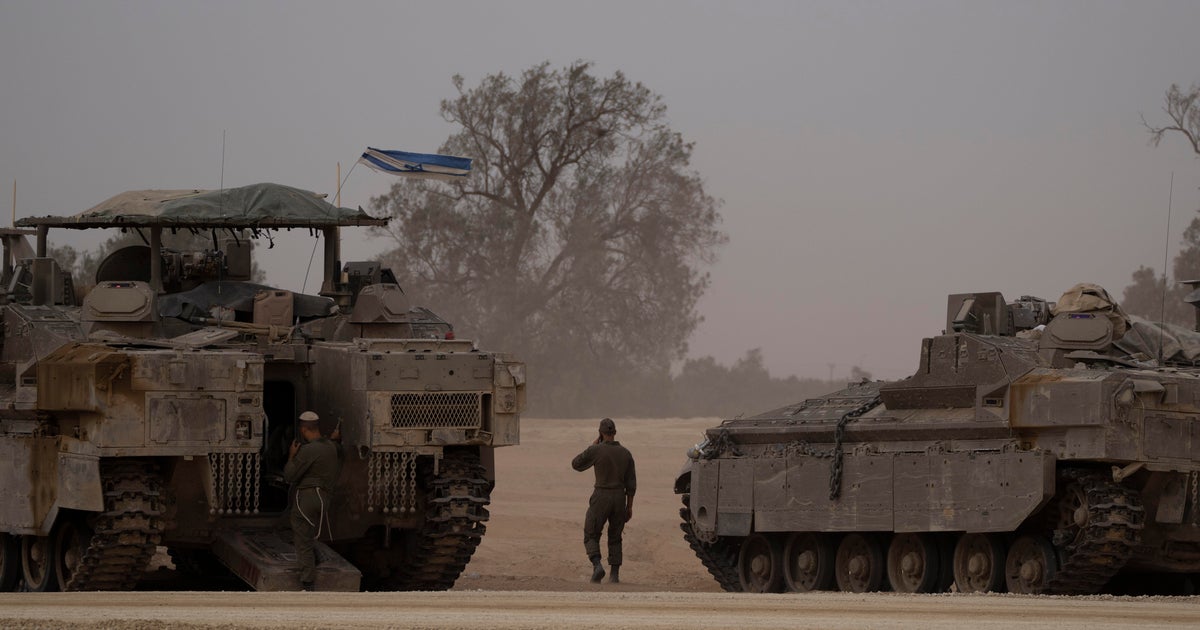Dozens of bodies found in Mexico hidden graves, with volunteers' help
Mexico City -- As many as 45 bodies have been discovered in clandestine burial sites in Mexico, officials said late on Monday. An estimated 30 cadavers were found in one spot in the northern state of Sonora and 15 were buried under the patio of a multifamily house on the outskirts of Guadalajara in Jalisco state.
The Sonora state prosecutor's office said in a statement Saturday that it had sent forensics experts to accompany a volunteer search group that helped discover what was estimated to be 27 sets of human remains in a field near the city of Cajeme. Late Sunday, the volunteer group, Guerreras Buscadoras (Warrior Searchers), said it had found three more sets of remains.
Clandestine burial sites have often been used by drug cartels in Mexico to hide the bodies of executed rivals or kidnap victims.
The Warrior Searchers group is comprised of mostly women who organize their own digging teams for missing relatives. CBS News' Haley Ott met another volunteer search team last year in western Mexico, who said that, like the Warrior Searchers, they felt compelled to come together to try and find their missing loved ones in the face of officials' inaction -- or inability to keep up with the demand created by a dizzying murder rate.
In response to the search groups' pleas for help, Mexico's central government has established a task force to help find more of the missing, and the Sonoran prosecutor's office was adamant that, "the Warrior Searchers are not alone in their hope of finding their loved ones," saying staff from the office were "accompanying them."
The "disappeared"
Almost 40,000 people in Mexico have simply vanished. Known as desaparecidos, or "the disappeared," some are abducted, others are caught in the crossfire of the cartel-related violence that permeates Mexican society. Many are presumed dead, but without bodies, their families are left without answers.
Groups like the Warrior Searchers and the "Colectivo" that CBS News met in Nayarit, often act on tips about where burial grounds are located and then walk through fields plunging metal rods into the earth to detect the telltale odor of decomposing bodies.
It's gruesome work, but María, a mother and Colectivo member who watched as her son was snatched off a street in their hometown, never to be seen again, told CBS News it gave her a sense of purpose and helped her deal with her loss.
"We feel like a family, because no one understands the pain that we're living," she told CBS News.
Murder in Mexico
The recent increase in violence in western Mexico has been largely attributed to the fracturing of previously stable cartels.
According to government statistics, 28,689 people were killed in Mexico in 2017 -- the highest number ever recorded, and 2018 was likely even more deadly.
Western Mexico was predominately controlled by the powerful Sinaloa Cartel, run the by notorious kingpin El Chapo, until its armed wing broke off in 2011 and formed a rival gang, Jalisco New Generation. That split, and the power struggles that ensued, have been blamed for the spike in the death toll.
Almost 2,000 hidden graves, usually containing multiple corpses, were discovered across Mexico between 2006 and 2016, according to data released by a project called A Dónde Van los Desaparecidos, or "Where the Missing Go."
But authorities in Mexico don't consistently look for them. When they are discovered, in houses, fields, or forests, it is often by neighbors who notice the smell of decomposing bodies, or grassroots search parties like the Warriors or the Colectivo.
Even ambulances under attack
On Sunday, in central Guanajuato state, the Red Cross chapter in the city of Salamanca briefly suspended operations after a gang dragged a wounded patient out of an ambulance at gunpoint.
The government of the state of Guanajuato said that state or local police would accompany Red Cross ambulances "on the high risk or high-impact calls" -- presumably calls related to gunshot victims.
The Red Cross chapter for Guanajuato shuttered operations in the city of 270,000, which has been plagued by violence between fuel theft gangs due to its gasoline refinery, but later resumed ambulance service.
In a statement, the Mexican Red Cross said it "is an impartial and neutral institution before all conflicts and its purpose is to relieve human suffering," adding the "#We are not part of the conflict" hashtag.
Earlier this month, a woman with gunshot wounds was executed inside an ambulance in Mexico's Pacific state of Guerrero, and paramedics were reportedly beaten by the perpetrators.
Authorities in the Pacific coast state of Guerrero reported Monday that gunmen barged into a restaurant in the town of Cuautla and attacked two families who were dining in a private room. The statement said three children were killed in the shooting Saturday. It gave no information on wounded, but local media said about a dozen people were injured.
